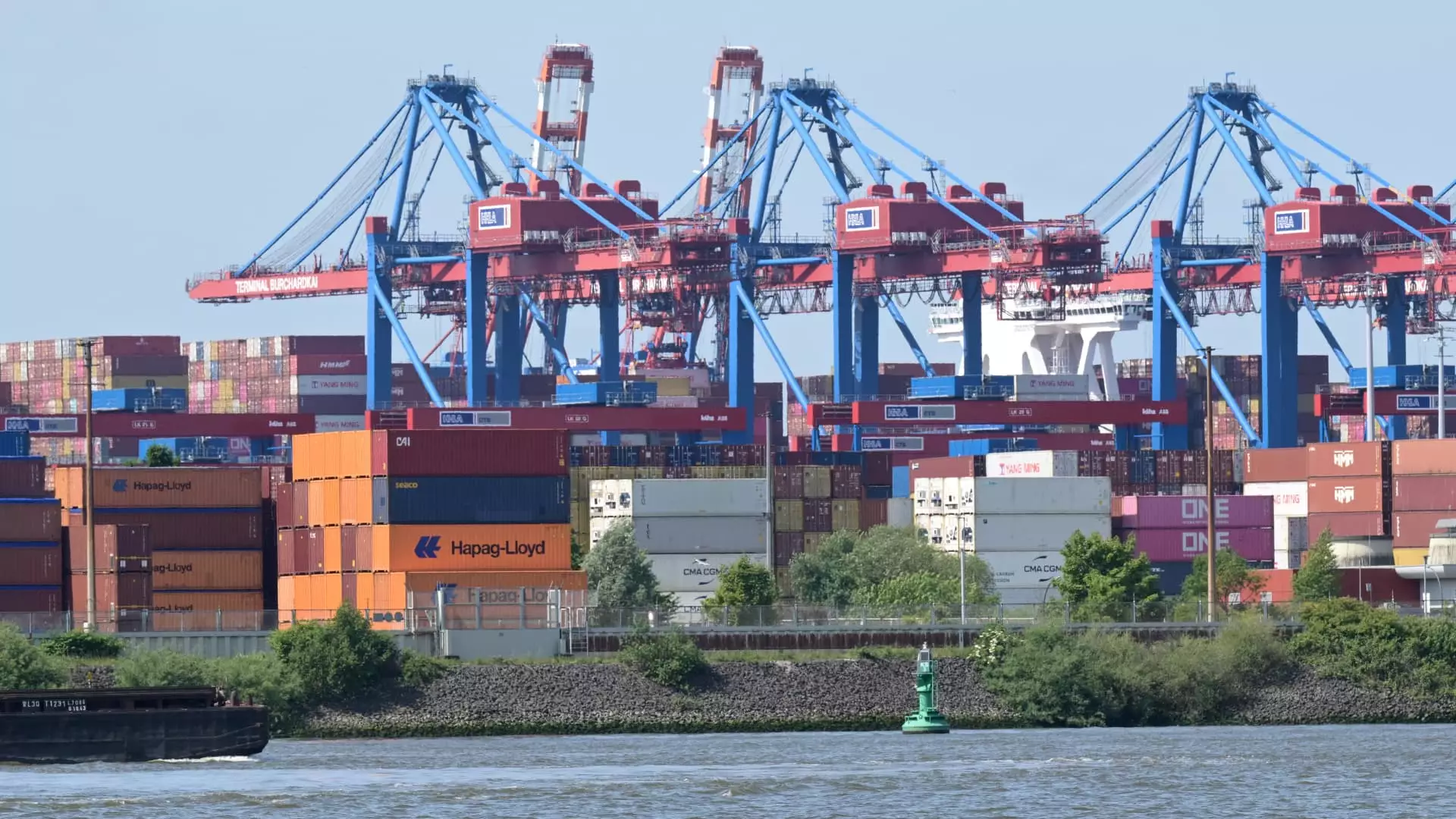As the countdown to the impending deadline intensifies, the fragile state of U.S.-EU trade negotiations reveals the volatility at the heart of transatlantic relations. The stakes couldn’t be higher: a failure to reach a credible agreement by July 9 threatens to ignite a trade war that could destabilize the global economy. From a centrist liberal perspective, this impasse exposes the shortcomings of aggressive tariff policies and highlights the urgent need for a more diplomatic, balanced approach that considers both economic prosperity and international cooperation. Pretending this is solely about trade misses the deeper issue: the erosion of trust and the breakdown of detailed negotiations, which are vital for long-term stability.
The Trump administration’s push for reciprocal tariffs, ostensibly aiming to protect American industries, has instead risked alienating one of its most significant trade partners. The European Union, with its intricate web of industries spanning pharmaceuticals to automotive manufacturing, functions as a pillar of the global economy—any disruption here shouldn’t be underestimated. Yet, despite the high stakes involved, negotiations have been marred by a fundamental disconnect. The U.S. appears unwilling to compromise on key issues, while the EU, displaying cautious pragmatism, recognizes that rushing into a quick-fix deal could be more damaging than beneficial. This disconnect isn’t just a negotiation tactic; it reflects broader tensions around sovereignty, economic fairness, and strategic independence.
The Dangerous Path of Escalation and Retaliation
If tariffs rise, consumers and workers will inevitably bear the brunt of this political tug-of-war. U.S. import duties, which could soar as high as 50% on certain European products, threaten to choke supply chains and drive prices higher across the board. The EU’s threatened retaliations, although temporarily paused, hang like a Sword of Damocles, ready to plunge the transatlantic partnership into chaos. Such a cycle of tit-for-tat measures isn’t merely a geopolitical drama—it has tangible repercussions for ordinary citizens on both sides of the Atlantic.
From a liberal perspective, this confrontation underlines the peril of prioritizing protectionism over multilateral cooperation. Trade, when handled responsibly, fosters not just economic growth but also global stability and diplomatic goodwill. The risk here is that a shortsighted, zero-sum approach by policymakers pushes both sides toward economic isolationism, which ultimately undermines the very interests they claim to protect. It is in these moments of crisis that the international community must resist the temptation to escalate, instead seeking pragmatic, innovative solutions rooted in fairness and mutual respect.
The Role of Leadership and the Future of Diplomatic Negotiations
European leaders, like Ursula von der Leyen, recognize the limited scope of what can realistically be achieved within the current timeframe. Her statement about aiming for an “agreement in principle” underscores the importance of maintaining momentum without sacrificing essential details. Unfortunately, such pragmatic stances often clash with domestic political pressures that favor bold, decisive action—regardless of consequences.
The whispers of a minimalist, “heads of terms” deal—similar to arrangements with other allies—reveal a grim reality: a comprehensive, binding treaty remains out of reach in the current political climate. Yet, this fragmentation risks leaving both sides on unstable footing, leaving unresolved issues festering beneath the surface of diplomatic talks. As the upcoming deadline nears, it becomes clear that leadership on both sides must transcend mere procedural negotiations and instead embrace a vision rooted in strategic patience and genuine partnership.
From a liberal standpoint, entrenched nationalism and short-term political gains threaten to undermine a core tenet of globalization: cooperation. The potential for a more nuanced, sustainable trade framework is slipping away amid this chaos. If both sides genuinely aspire to maintain their economic stature and global influence, they need to prioritize dialogue that balances national interests with shared responsibilities. Anything less reduces these negotiations to a political spectacle, imperiling global stability and the future of transatlantic relations.



Leave a Reply